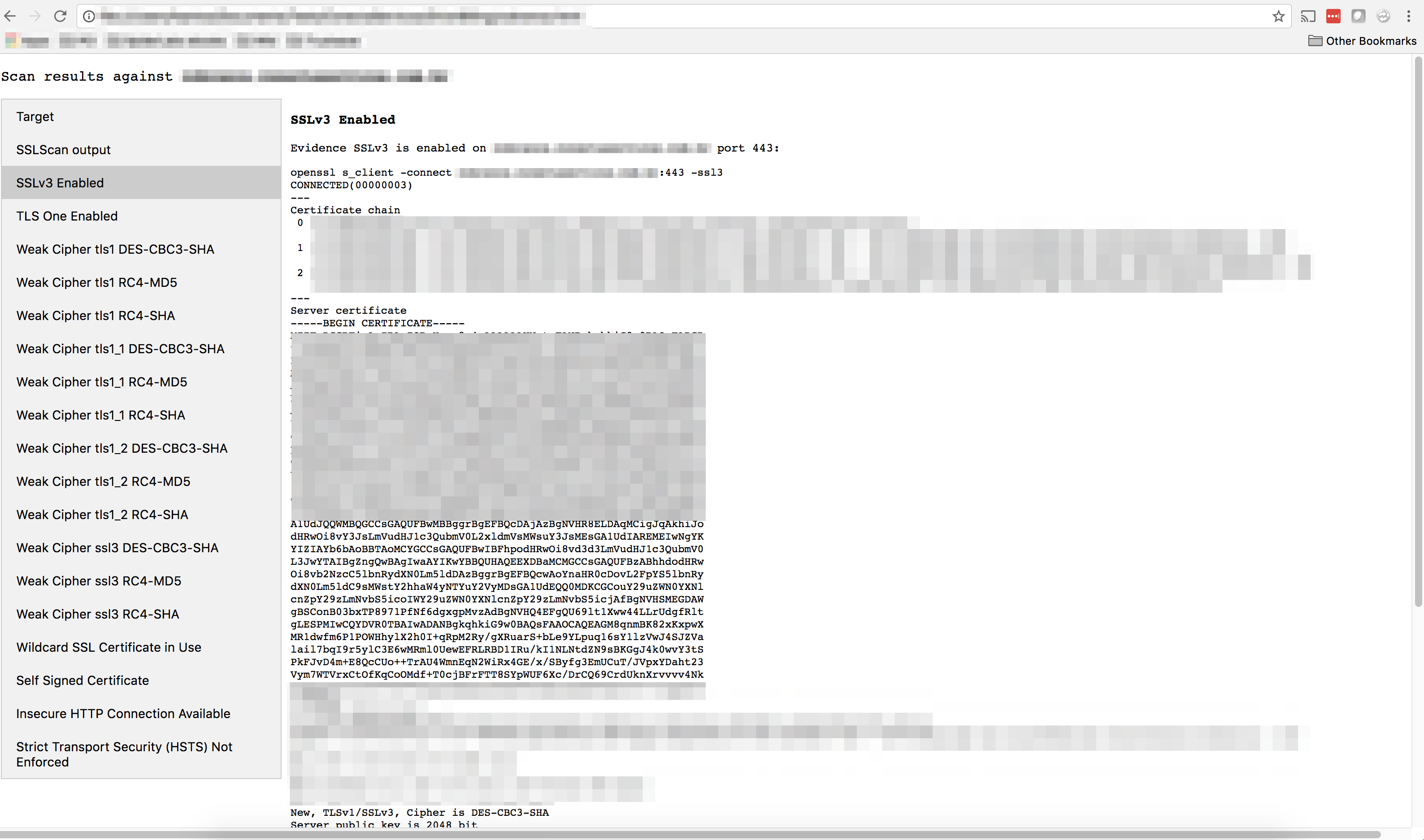Parse sslscan output and generate evidences using openssl
./sslscanutil.py -h
Usage: sslscanutil.py [options]
Options:
-h, --help show this help message and exit
-H HOST, --host=HOST Format: hostname or IP address
-P PORT, --port=PORT Format: destination port address
-S SSH, --ssh=SSH Format: 'ssh user@host'
-O OUTPUT, --output=OUTPUT
Format: report.html
-I INPUT, --input=INPUT
Format: file containing lines
host:port:path_to_report.html
--openssl=OPENSSL_PATH
Custom path to openssl
--sslscan=SSLSCAN_PATH
Custom path to sslscan
--curl=CURL_PATH Custom path to curl
--nmap=NMAP_PATH Custom path to nmap
--enable-recon Enable Nmap recon - default is disabled
- Using sslscan remotely throughout a ssh session
./scanutil.py -H target -P 443 -S 'ssh user@remoteshell.com'
- Using sslcan locally
./scanutil.py -H target -P 443
- Batch mode
echo "host1:443:host1.html" > batch.txt
echo "host2:443:host2.html" >> batch.txt
./sslscanutil.py -I batch.txt
or
./sslscanutil.py -I batch.txt -S 'ssh root@vrpt'
This tool is not only a SSL checker. We are already scanning for HSTS and looking for HTTP port opened. Any interesting idea to improve the software? Let me know or send a PR.
- Check for expired SSL certificates
Please, send your ideas!
Thanks
